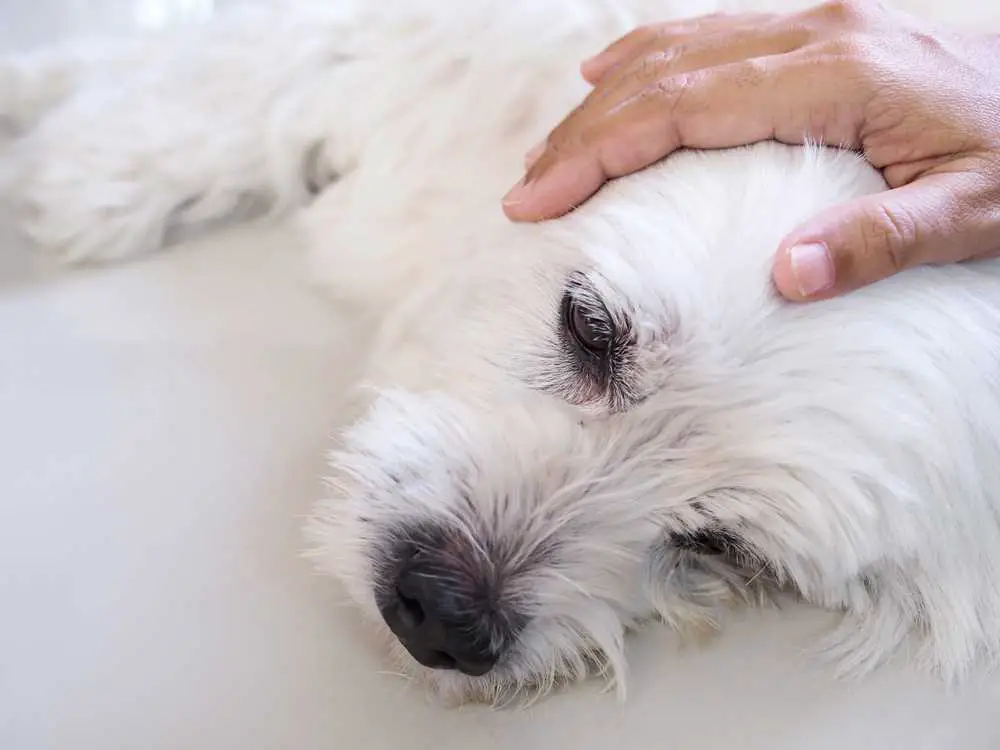Do Animals Get Headaches? Exploring the Science Behind It

Have you ever wondered if your pet might be suffering from a headache? We care deeply about the health and well-being of our animal companions, and it’s natural to wonder if they can feel the same pain we do.
Animal headaches are still not well understood, and there is a lack of research on the subject. However, based on their behavior and neurological structure, some experts in the field believe that animals do experience headaches.
As pet owners, we must be aware of the signs and symptoms of headaches in our animals. Animals may exhibit behavioral changes such as irritability, lethargy, and avoidance of light or noise. Physical symptoms may include head shaking, rubbing their heads against surfaces, or changes in posture or movement.

If you suspect your pet is suffering from a headache, you should consult with a veterinarian. They can assist in determining the source of the symptoms and offering treatment options to alleviate any discomfort.
There are steps we can take as pet owners, in addition to working with a veterinarian, to prevent headaches in our furry friends. A healthy diet, regular exercise, and environmental enrichment can all help reduce headaches and promote overall health.
So, while there is still much we do not know about headaches in animals, it is critical for us as pet owners to be aware of the potential impact on our animal companions.
We can help ensure the health and happiness of our furry friends by observing their behavior and seeking veterinary care when necessary.
The Neurological Basis of Headaches in Animals
We may wonder as pet owners how animals experience headaches because they can’t communicate their pain in the same way that humans can. To understand the neurological basis of headaches in animals, we must first examine their brain anatomy and physiology.
While there are similarities, there are also significant differences between human and animal brains. The cerebral cortex, for example, which is responsible for complex thinking in humans, is less developed in animals. Animals, on the other hand, have a complex nervous system that can feel pain and discomfort.

Animals can get headaches for a variety of reasons, including inflammation, infection, and injury. Inflammation of the brain or its coverings can cause headaches in both animals and humans. Infections like meningitis and encephalitis can also cause headaches in animals. Head injuries in animals can also cause headaches.
Pet owners should seek veterinary care if they suspect their animal is suffering from a headache. To determine the cause of the symptoms, a veterinarian can perform a physical exam as well as imaging tests. Medication to relieve pain and inflammation, as well as addressing underlying conditions, are possible treatment options.
Signs and Symptoms of Headaches in Animals
Behavioral signs of headaches in animals may include decreased activity, lethargy, irritability, or avoidance of interactions with humans or other animals. Changes in their usual behavior, such as becoming more aggressive or vocalizing more frequently, can also happen.
In animals, physical symptoms of headaches include rubbing their heads against surfaces or shaking their heads. They may also be light or noise sensitive, avoiding bright areas or loud noises. Changes in eating and sleeping habits may also occur in some animals.

It is important to note that different animal species may exhibit different headache symptoms. Dogs, for example, may pace or become restless, whereas cats may hide or become more aloof. It is critical to closely monitor your animal’s behavior and note any changes that may indicate a headache.
It is critical to recognize the signs and symptoms of headaches in animals for proper diagnosis and treatment.
Diagnosis and Treatment of Headaches in Animals
To rule out other potential causes of your animal’s symptoms, diagnostic tests such as blood work or imaging tests may be required. Your veterinarian may also request that you keep a record of your animal’s symptoms, such as when they occur and how long they last.
Once a headache diagnosis has been confirmed, your veterinarian will work with you to determine the best course of treatment for your pet.
Medication to relieve pain or reduce inflammation, changes to your animal’s environment to reduce headache triggers, or dietary changes to address any underlying health issues that may be contributing to the headaches are all treatment options.

It is important to note that headache treatment in animals may differ from headache treatment in humans. Some human medications may not be safe for animals, and dosages may need to be adjusted based on the animal’s size and species.
Working closely with your veterinarian to determine the best treatment plan for your animal is so important.
So, recognizing and treating headaches in animals requires careful observation, diagnostic testing, and collaboration with a veterinarian. We can ensure that our animal companions receive the best possible care and treatment for their health and well-being by working together.
Preventing Headaches in Animals
As a pet owner, I’m sure you want to do everything possible to keep your furry friend comfortable, including preventing headaches. Fortunately, there are several preventative measures you can take to reduce the likelihood of headaches in animals.
First and foremost, you must ensure that your pet receives adequate nutrition and exercise. A healthy diet and regular physical activity can not only improve overall health but also reduce stress and tension, both of which can cause headaches.

Furthermore, environmental enrichment can help prevent headaches. This means offering a stimulating environment for your pet that allows for both mental and physical activity. Toys and activities that encourage play, for example, can be provided, as well as opportunities for your pet to explore and interact with their surroundings.
Acupuncture and massage may also be beneficial in the prevention of headaches in animals. These therapies can aid in relaxation and stress reduction, lowering the likelihood of headaches.
It is important to keep in mind that each animal is unique, and what works for one may not work for another. To determine the best course of action for your specific pet, always consult with your veterinarian.
However, there is still a lack of research on the prevalence and impact of headaches in animals, making it difficult for veterinarians to fully understand and treat this condition.
As a result, more research is needed to better understand headaches in animals and how they can be effectively treated. We can improve the health and well-being of our beloved animal companions by raising awareness and advocating for more research.
RELATED😊: 51 Crossbreed Dogs You’ll Want to Take Home: The Cutest Pups You’ve Never Seen.
FAQ:❓
Can my pet get a headache from loud noises like fireworks or thunderstorms?
Yes, loud noises such as fireworks and thunderstorms can cause anxiety and stress in pets, leading to headaches. If your pet appears agitated during these events, make a safe and quiet area for them to retreat to.
How can I tell if my pet is experiencing a headache?
Lethargy, decreased appetite, sensitivity to touch, and behavioral changes are all common symptoms of a headache in animals. If you notice any of these symptoms, you should consult with your veterinarian.
Can I give my pet over-the-counter pain medication for a headache?
No, it’s never safe to give human medication to your pet without first consulting with a veterinarian. Some medications can be toxic to animals and cause serious harm.
Are certain breeds more susceptible to headaches?
There is no evidence to suggest that some breeds are more susceptible to headaches than others. However, certain medical conditions or genetic predispositions may increase the risk of headaches in some animals.
Is there anything I can do to prevent my pet from getting headaches?
Maintaining a healthy diet and exercise routine, as well as providing plenty of mental and physical stimulation, can all help to prevent headaches in animals. It’s also essential to bring your pet in for regular vet check-ups to ensure that any underlying medical conditions are properly managed.
